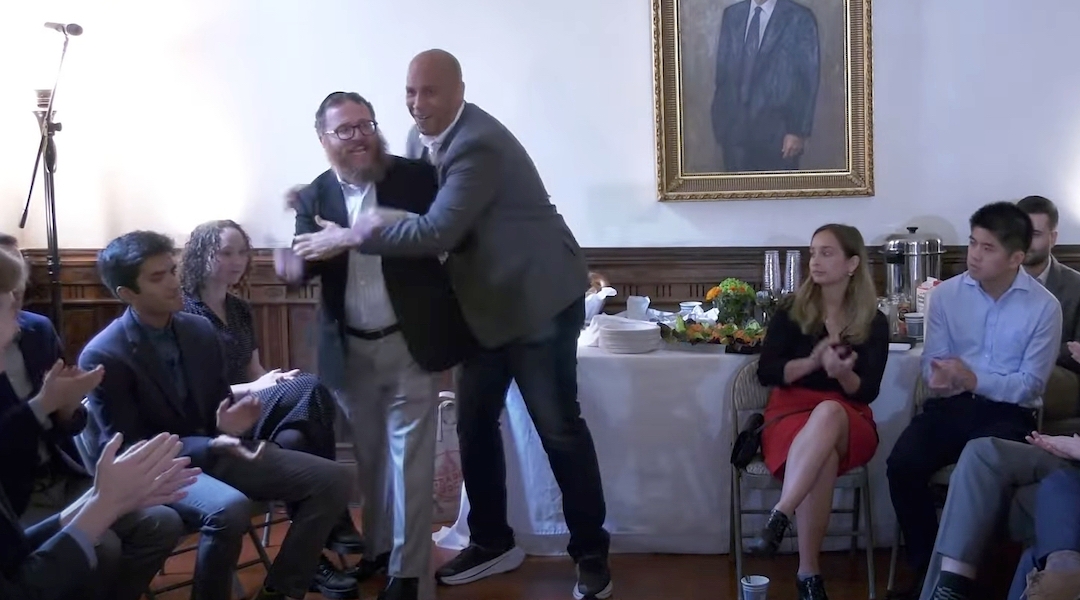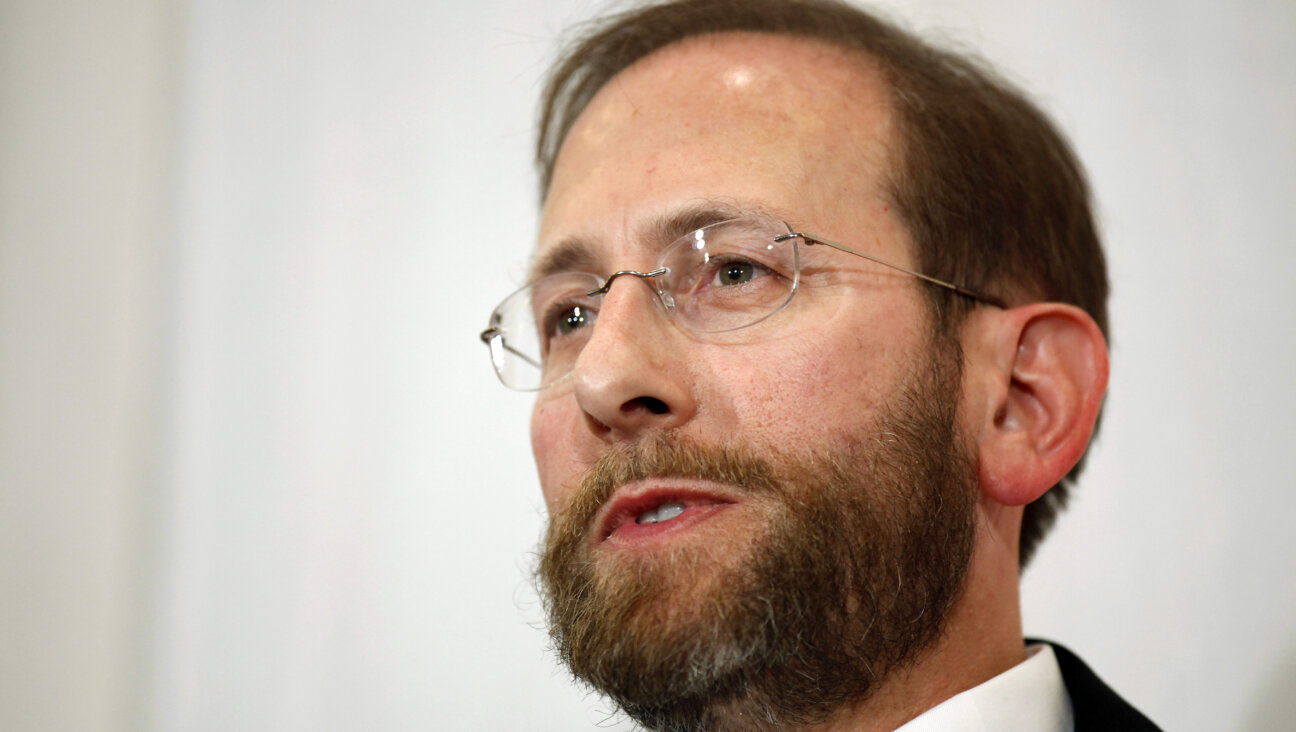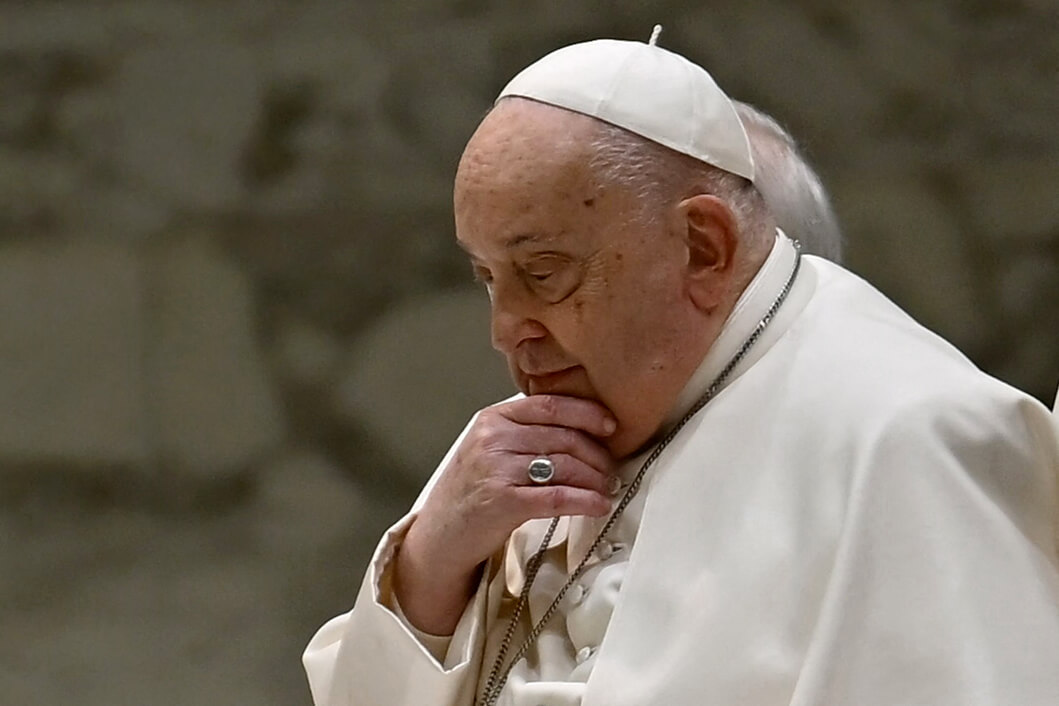Rooted In the Past
The great William Faulkner once wrote: “The past is not dead. In fact, it’s not even past.” My trip home to Toronto last summer with my wife and newborn son made me realize how true those words actually are. I saw my baby boy running the same gauntlet that had been my childhood, passed in scheduled timeslots from one grandparent to another with conflicting narratives whispered in his ears.
My family was split by divorce when I was 5 years old and through the years, either through bravado, ignorance or sheer pain, I swore up and down that I had not been affected by the explosion that rocked my nuclear family. Life went on; I had friends and girlfriends, graduated college, saw the world, attended graduate school, got married, published a book and had a child. Not only did I survive, I thrived.
Returning to one’s birthplace with a newborn child in tow is like coming home after a long exile in which nothing has changed. In an instant, the new father becomes a child again, decades peeling away like the skin of an onion down to the raw nerve, reliving that excruciating, timeless waltz of parent and offspring, in which all wisdom on both sides is constantly questioned.
Now the baby holds within him all the hopes once channeled into me, a second chance to redeem parental mistakes that were inevitable the first time around, but inexcusable the second. So why is it that I feel like I am watching a rerun of a tired old show I have already seen? The enmity is so thick, it is as if my parents had been divorced yesterday.
My wife and I thought coming home would be a vacation of sorts, but we have found little peace among family, eager to stake their claim on the next generation.
But, for an afternoon we did find a measure of peace among the whispering grass and quiet tombstones of the Goel Tzedec Cemetery, tucked away behind a high wall reminiscent of European Jewish cemeteries of a past era. The surrounding neighborhood today is almost entirely non-Jewish, just south of the heart of Greektown, tucked away on a street of working-class row houses where strings of Christmas lights buzz months after the snow has melted away.
The gate is locked, but I’ve been told that I can find the key on a nail inside the screen door of a house just up the street. I tiptoe up the steps like a burglar, pull open the creaking door and find the key attached to a plastic Day-Glo orange expandable bracelet.
The Master lock snaps with ease, and the cemetery’s heavy, rusted door opens to reveal golden sun shining through drooping ivy, humming yellow jackets, stately gravestones, an ancient berry tree and, in the distance, the shining glass and steel towers of downtown Toronto.
I’ve been told that my maternal great-great grandfather, Barnett Polakoff, is buried here. My only obvious connection to him is a pocket watch and an engraved brass-handled cane that sits in my office at home. I know that he was a shopkeeper, but I know little else. He is so many generations distant from me that he might as well be a character from a novel I have never read. My father seems to agree, and chastises me for visiting “fake relatives” when I could be visiting his family at a cemetery across town. But he’s missing the point. I am not trying to introduce my son into a family that does not include my father; this is not about exclusion, but expansion, drawing down the concentric circles of this world to an earlier version of it.
The people buried here are the lucky ones, leaving Russia in time to escape pogroms, living out their lives as merchants, scholars and parents in the relative peace of Canada, missing out on that other great European massacre. As I search among the graves for my distant blood relative, I find several stones marked with the name Papernick — six in all, none of whom, as far as I know, are related to me. I don’t think one can ever get used to seeing one’s own name on a gravestone, but there is a strange comfort knowing that others will know that you existed long after you are gone. It strikes me as odd that I should be expected to pay respects to others named Papernick but not to these people, who share my name. We are all cut from the same rock and end up just the same, beneath one.
I am called back a second and third time to a small weatherworn stone marked in black paint on one side with my last name. The Hebrew has been rubbed out by time, but the English engraved letters remain. Every stone has its own story, and this one speaks to me: a young private, Hymie Papernick, killed in France in 1918, just three months before the Armistice. He is 10 years younger than I am now, and I think of all the frivolities I engaged in at that age: the drinking, carousing, how I was just starting out on the road to becoming the person I am. I am certain that he never had a child, and suddenly I want to hold my son and never let go.
I think of my father and of the war between Israel and Hezbollah, and how he says he mourns the death of every Israeli soldier as if he is mourning a member of his own family, even though he has never set foot on Israeli soil. And I realize now that he could never believe his own criticism about fake relatives. In fact, I’m comforted by the thought that he feels we are all relatives, all connected and part of the same history and destiny.
My wife finds Barnett Polakoff’s grave and calls me over; his wife, Anna, is buried several plots away. I feel worn out by the heat of the day, and we stand by the grave in silence. I don’t know what to think about this man I have never met. In fact, I have only met his grandson, my own grandfather, a handful of times. This visit feels suddenly anticlimactic, as if I had expected to learn something from this meeting. I place the obligatory stone upon the grave to mark our visit. I pick up another stone and place it in my 3-month-old son’s tiny hand. And for the first time since we unstrapped him from his car seat he begins to cry, to wail as he drops the stone atop his great-great-great grandfather’s grave, as if he has known all along how to be a mourner.
Jon Papernick is the author of “The Ascent of Eli Israel” (Arcade Publishing, 2002) and writes the column “The Perfect Jew” for Jewcy.com.
The Forward is free to read, but it isn’t free to produce

I hope you appreciated this article. Before you go, I’d like to ask you to please support the Forward.
Now more than ever, American Jews need independent news they can trust, with reporting driven by truth, not ideology. We serve you, not any ideological agenda.
At a time when other newsrooms are closing or cutting back, the Forward has removed its paywall and invested additional resources to report on the ground from Israel and around the U.S. on the impact of the war, rising antisemitism and polarized discourse.
This is a great time to support independent Jewish journalism you rely on. Make a gift today!
— Rachel Fishman Feddersen, Publisher and CEO
Support our mission to tell the Jewish story fully and fairly.
Most Popular
- 1

Culture Trump wants to honor Hannah Arendt in a ‘Garden of American Heroes.’ Is this a joke?
- 2

Opinion The dangerous Nazi legend behind Trump’s ruthless grab for power
- 3
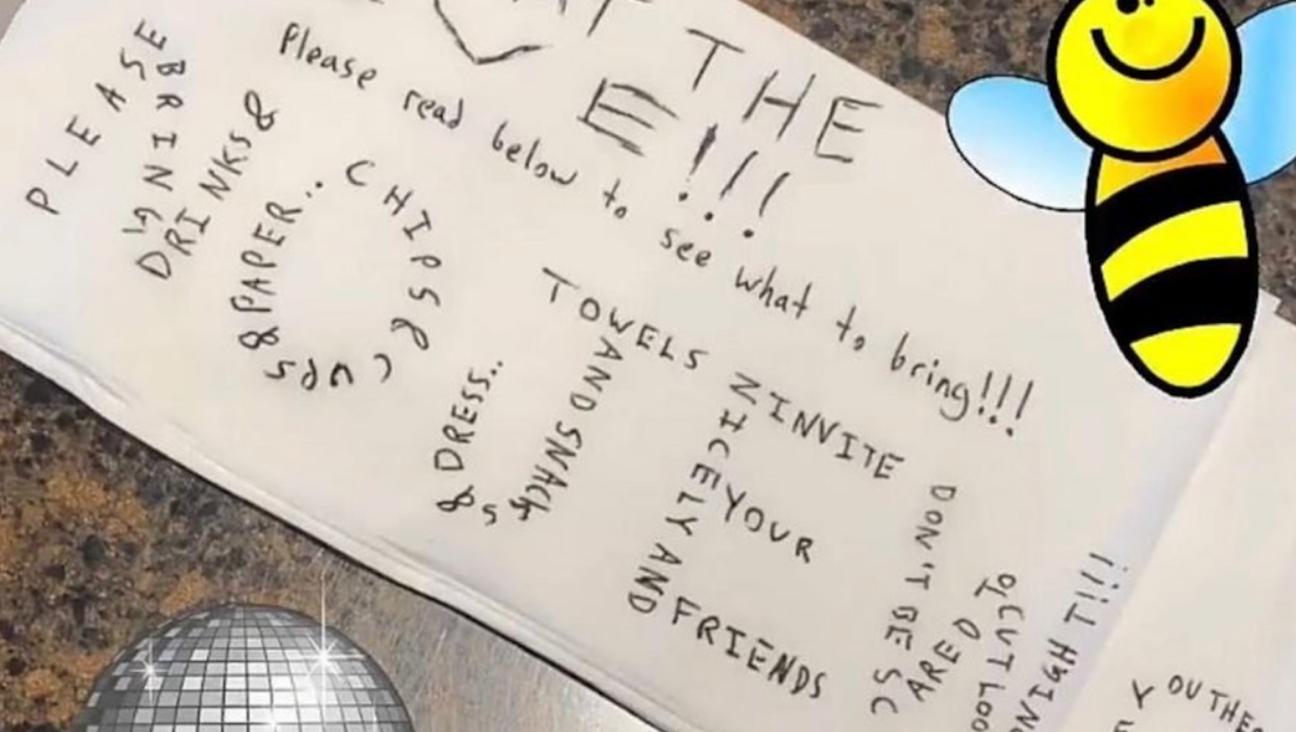
Fast Forward The invitation said, ‘No Jews.’ The response from campus officials, at least, was real.
- 4

Opinion A Holocaust perpetrator was just celebrated on US soil. I think I know why no one objected.
In Case You Missed It
-

Fast Forward What the election of Mark Carney would mean for Canadian Jews and Israel
-
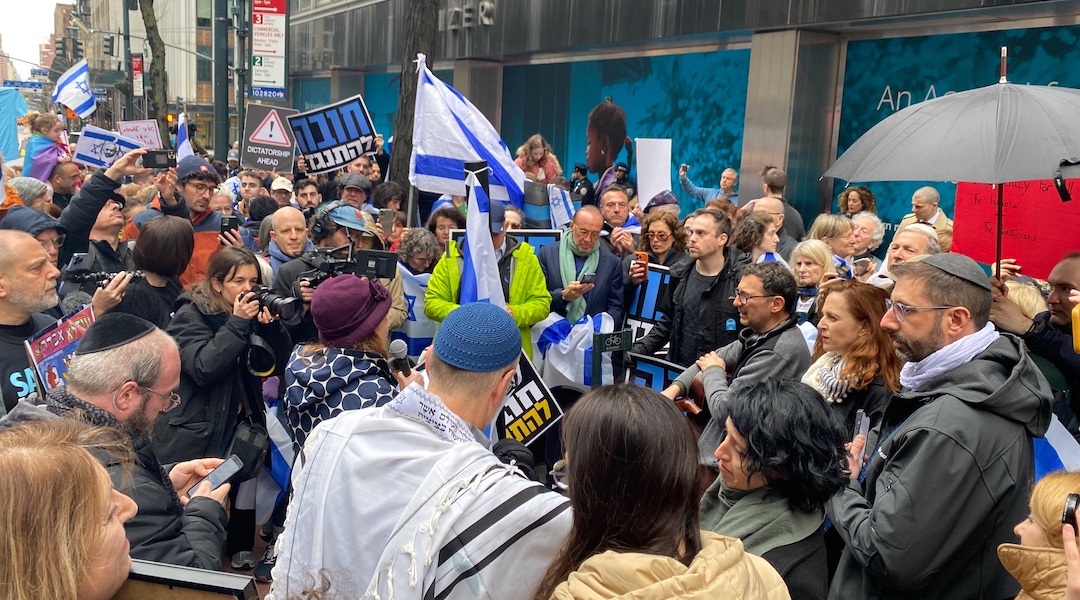
Fast Forward Over 500 rabbis sign letter rejecting Trump’s antisemitism agenda
-
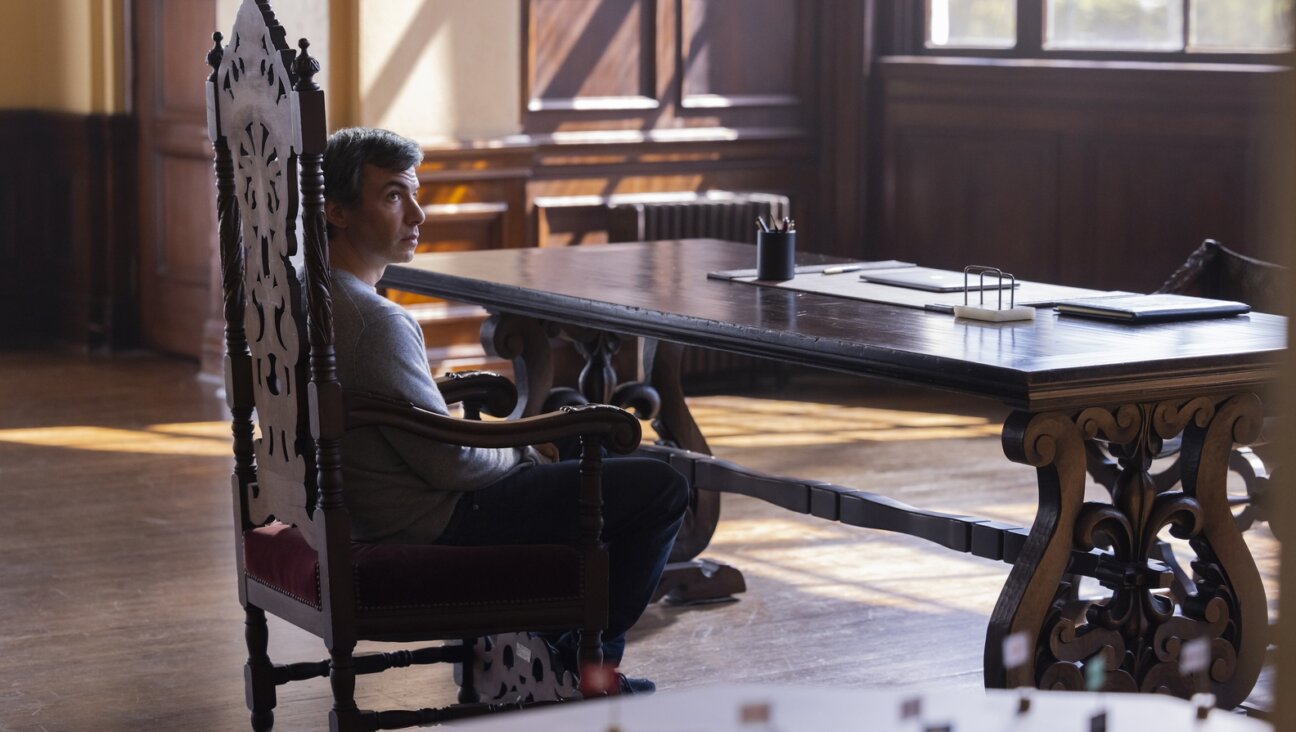
Film & TV In ‘The Rehearsal,’ Nathan Fielder fights the removal of his Holocaust fashion episode
-

Fast Forward AJC, USC Shoah Foundation announce partnership to document antisemitism since World War II
-
Shop the Forward Store
100% of profits support our journalism
Republish This Story
Please read before republishing
We’re happy to make this story available to republish for free, unless it originated with JTA, Haaretz or another publication (as indicated on the article) and as long as you follow our guidelines.
You must comply with the following:
- Credit the Forward
- Retain our pixel
- Preserve our canonical link in Google search
- Add a noindex tag in Google search
See our full guidelines for more information, and this guide for detail about canonical URLs.
To republish, copy the HTML by clicking on the yellow button to the right; it includes our tracking pixel, all paragraph styles and hyperlinks, the author byline and credit to the Forward. It does not include images; to avoid copyright violations, you must add them manually, following our guidelines. Please email us at [email protected], subject line “republish,” with any questions or to let us know what stories you’re picking up.







